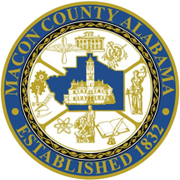Alabama gets $430,000 to bring new jobs to Macon County
By WSFA 12 News Staff | Read the original article on WSFA MONTGOMERY, Ala. (WSFA) – An initiative by the Alabama Department of Economic and
By WSFA 12 News Staff | Read the original article on WSFA MONTGOMERY, Ala. (WSFA) – An initiative by the Alabama Department of Economic and
A new manufacturing facility for Shinsung is under construction in Shorter, Alabama on the New Diamond of the I-85 Corridor. https://vimeo.com/1067004467
The Utilities Board of Tuskegee (UBT) is now fully deployed and underway with construction of a new 28-megawatt power substation in the Tuskegee Commerce Park.
Miracles do happen. Pilot is one of those miracles that has come our way. After five years of waiting and almost $17 million invested in
By Jochai Ben-Avie | Read the original article on Impact Entrepreneur From small towns to big cities, affordable, high-speed internet is critical in today’s world.
By Jerry Underwood | Read the original article on Made in Alabama TUSKEGEE, Alabama — Commerce Secretary Ellen McNair joined officials of Samkee Corp. and
Rural America disproportionately lacks access to high-speed broadband, an essential component of modern life. Though the issue—and many attempts to address it—go back much farther,
Real Park Overview Company Site Selection Location decisions for users are singular opportunities to improve competitive advantage. Finding the optimal location is predicated on both
By Jerry Underwood | Read the original article on Made in Alabama TUSKEGEE, Alabama — Governor Kay Ivey announced today that Republic Airways Holdings and
